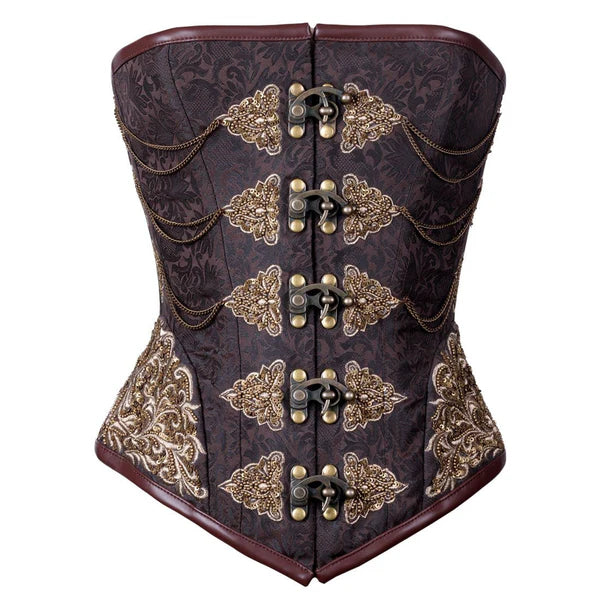As the fashion industry continues to expand globally, finding the right manufacturing partner is essential for any brand looking to stand out and succeed. For corset brands, the choice of manufacturer impacts not only the quality of the product but also its uniqueness and value in the market. India has become a favored destination for fashion manufacturing, and its corset production capabilities are no exception. Here are the top reasons why choosing a corset manufacturer in India can be advantageous for your fashion brand.
1. Skilled Craftsmanship and Rich Textile Heritage
India is known for its rich textile history and skilled artisans who bring generations of expertise to garment manufacturing. Corset making requires precision and attention to detail, as these garments are structured and fitted to enhance the wearer’s silhouette. Indian manufacturers specialize in intricate embroidery, fabric detailing, and design techniques that can give your corsets a unique aesthetic appeal. Whether your brand requires lace overlays, delicate boning, or embellishments, Indian corset manufacturers can bring your designs to life with high quality and fine craftsmanship.
2. Cost-Effective Production
One of the biggest reasons global fashion brands turn to Indian manufacturers is the cost-effectiveness of production. Manufacturing in India allows brands to produce high-quality corsets at a fraction of the cost in comparison to many Western countries. This is particularly important for new and emerging brands that need to manage costs while delivering quality products. Lower production costs mean you can price your corsets more competitively or allocate your budget towards marketing and expanding your brand.
3. Access to a Variety of Quality Materials
India is home to a wide range of fabrics, including silk, cotton, satin, and brocade, which are often used in corsetry. Many Indian manufacturers have well-established supply chains and relationships with local fabric suppliers, allowing them access to high-quality materials at competitive prices. This access to diverse materials means that you can create a variety of corset styles— from traditional lace corsets to trendy steampunk and gothic designs—without compromising on quality.
4. Customization and Flexibility in Production
Another major advantage of working with a corset manufacturer in India is the ability to customize designs and place flexible orders. Many Indian manufacturers cater to small and medium-sized brands by offering lower minimum order quantities (MOQs) than manufacturers in other countries. This is especially helpful for boutique corset brands that may want to test a small collection before committing to larger production runs. Additionally, Indian manufacturers are often willing to accommodate specific customizations and unique design elements, allowing your brand to create exclusive and personalized corset lines.
5. Adherence to International Standards
India’s garment manufacturing industry has evolved to meet international standards in quality and production processes. Many corset manufacturers in India adhere to strict quality checks and comply with global standards for textile safety, ethical labor practices, and environmental sustainability. As a result, you can be confident that your corsets will meet both quality and ethical standards, which is increasingly important to modern consumers.
6. Sustainability and Ethical Production Options
India’s manufacturing sector is increasingly focused on sustainable practices, with many manufacturers now offering eco-friendly materials, sustainable packaging, and ethical labor conditions. As the fashion industry shifts towards more sustainable practices, working with a manufacturer in India can help align your brand with these values. Indian manufacturers are increasingly aware of the importance of ethical practices, and many provide transparent processes to ensure that production meets sustainable and ethical guidelines.

